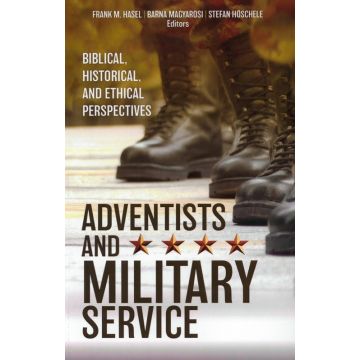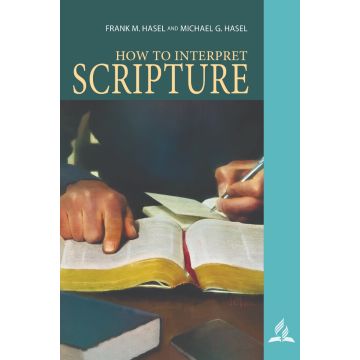Adventists and Military Service

This product qualifies towards the free shipping offer.
Description / Adventists and Military Service
The Seventh-day Adventist Church has a long and rich history of being a Church that affirms peace, seeks reconciliation and has encouraged a noncombatant stance. In a time when wars and war-like conflicts are on the global rise, there is an urgent need to reflect more fully on the role of Christ’s followers as conscientious agents of peace and as conscientious objectors to all forms of violence. By candidly looking at the biblical evidence in the Old and New Testament and by learning from Church history our own history, the authors of this book address various challenges of military service and try to recover the spirit of the early Christian Church of Jesus Christ on this issue.
The book has grown out of an initiative of the Biblical Research Committee (BRC) of what is now the Inter-European Division (EUD) of the Seventh-day Adventist Church (SDA). The authors, who come from Europe, Africa and North America, reflect the international composition of the SDA Church. The need was felt to address this pressing question to give guidance and orientation, especially to our young people who are increasingly faced with issues about military service and who seek to know what the Bible has to say with regards to war and the bearing of arms.
Contributors:
Barna Magyarosi
Johannes Kovar
Kwabena Donkor
Zoltán Szallós-Farkas
Douglas Morgan
Daniel Heinz
Frank M. Hasel
Andreas Bochmann
Stefan Höschele
Kerstin Maiwald
More Information
| Item Format | Paperback |
|---|---|
| Author Name | Barna Magyarosi,Frank M. Hasel,Stefan Höschele |
| Weight (lbs) | 0.740000 |
| Page Count | 228 |
| Language | English |
| Year Published | 2019 |
Customer Reviews
This book provides thoughtful, comprehensive coverage of the subject, beginning with war and violence in the Old Testament, the non-violent stance of the New Testament, the development of these concepts throughout history, and their influence on the various strands of Christianity and modern thought. The twists and turns of the Adventist journey from the pacifism of the first official statement in 1867, to the current position are carefully mapped out.
The relevance and timeliness of this book is underlined by the heart-wrenching stories of non-combatants, the challenges of those facing genocide and what happens when the shooting stops and combatants come home.
These chapters provide different perspectives, which are given their application in the chapter on the ethical challenges of military service. The practical realities and ethical dilemmas of killing, sabbath keeping, patriotism, allegiance, lifestyle and military training are all examined. The clarity of the arguments forces the reader to face uncomfortable realities and make a personal decision.
It is concise, informative and comprehensive. For the reader who wants to find out more there are useful appendices of official Seventh-day Adventist statements and two bibliographies. This is a must-read book for anyone who wants a deeper understanding of the issues of surrounding military service, Adventist engagement in war and the bearing of arms.





